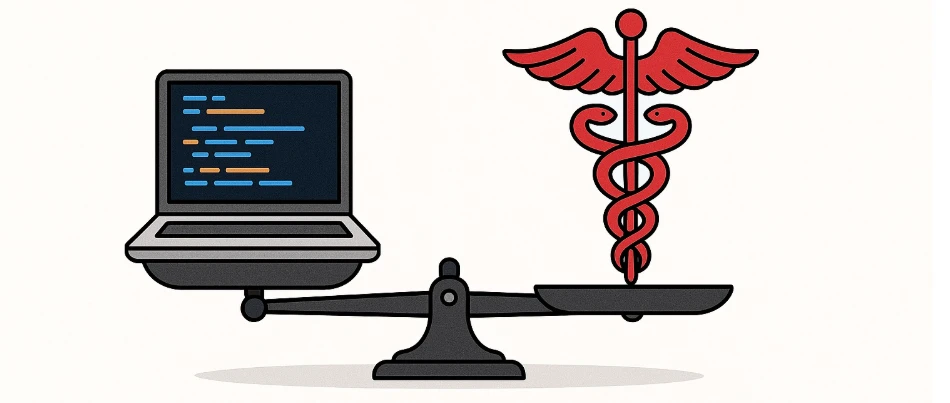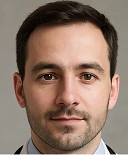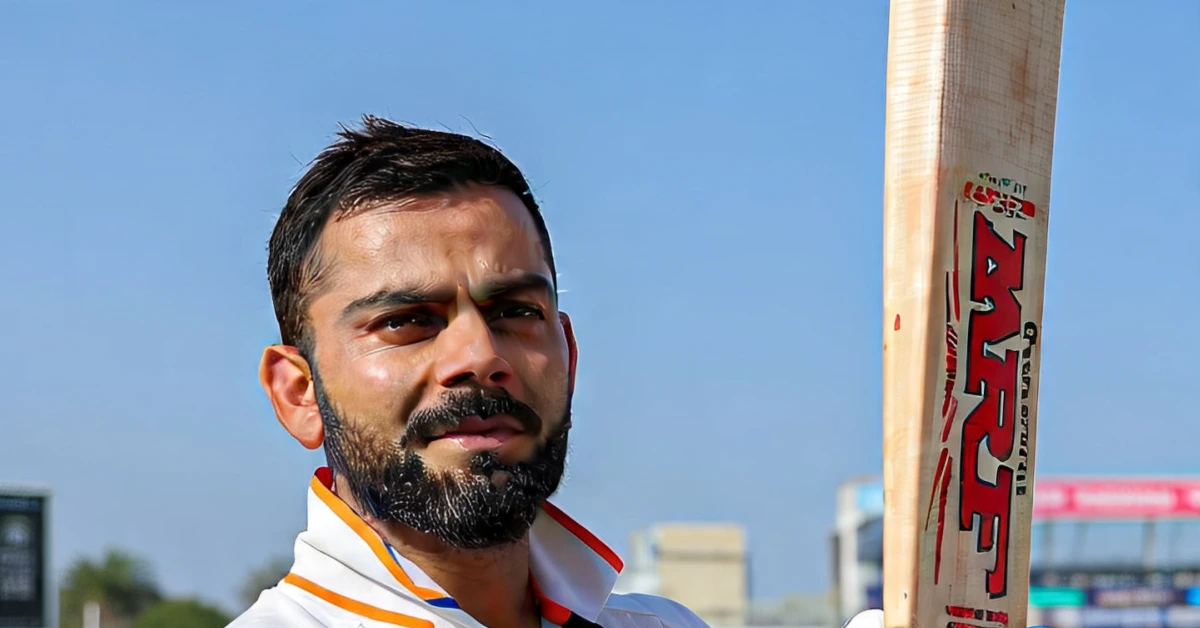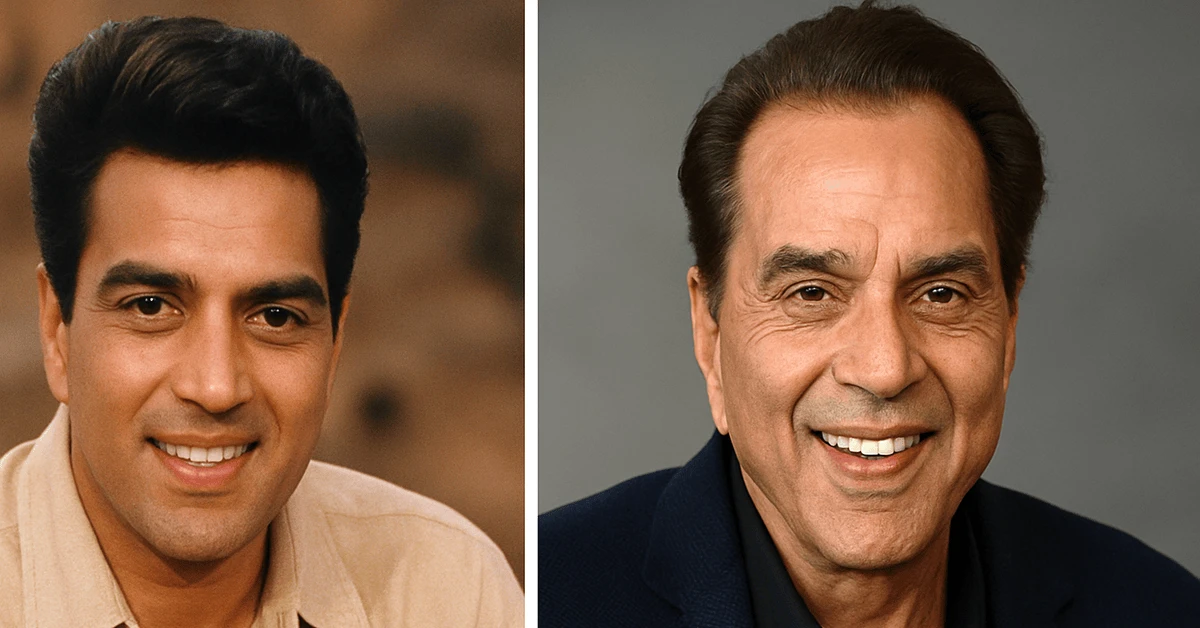Last Updated: July 2, 2025
Should I Choose Software Engineering or Medical as a Career?

Choosing between software engineering and medicine is one of the most important and challenging decisions for students who are passionate about science and want a meaningful, stable, and impactful career. Both professions come with prestige, financial rewards, and social value, but they are fundamentally different in terms of education, personality fit, lifestyle, financial trajectory, and future outlook.
1. Educational Path & Time Investment
Medicine: Requires at least 5 years of MBBS (in Pakistan or similar countries), followed by 1 year of house job, and often additional 3-5 years of specialization. Total: 8–12 years.
Software Engineering: A 4-year bachelor’s degree is standard, but many start jobs or freelancing during university. With bootcamps and online certifications, even non-CS graduates can enter the field.
2. Personality Fit & Passion
If you’re compassionate, patient, emotionally strong, and driven by the desire to help people face-to-face, medicine suits you. If you enjoy logical problem-solving, creating things, and continuous learning, tech might be your world.
3. Lifestyle & Work-Life Balance
Doctors: Often have long, unpredictable hours. Emergency calls, night shifts, and physical stress are common.
Software Engineers: Generally have more flexible schedules, remote work opportunities, and better balance—though crunch time in startups can be intense.
4. Earning Potential
Medicine: Slow start. Junior doctors often earn modestly. However, senior consultants and private practitioners earn well over time.
Software Engineering: Fast growth. Even junior devs can earn well, especially with remote international jobs. Freelancing also offers early financial independence.
5. Future Proofing & Industry Trends
Both fields are secure. The world will always need healthcare and technology. However, software evolves rapidly. AI, Web3, cloud computing, and data science are booming areas.
In contrast, healthcare evolves slowly but remains a societal cornerstone. Telemedicine, robotic surgery, and digital diagnostics are signs of tech integration in medicine.
6. Burnout, Stress & Mental Health
Medicine: Emotional stress, deaths, overwork, and regulatory issues are common stressors. Burnout rate among doctors is high globally.
Software: Burnout exists but is often due to toxic workplaces, not the work itself. Many switch companies or freelance for better balance.
7. Career Flexibility
Software engineers can switch to product management, entrepreneurship, teaching, or UX/UI design. Doctors have fewer pivot options—most remain in clinical or academic roles.
8. Global Mobility
Doctors: Need licenses for each country (e.g., USMLE for the USA, PLAB for the UK).
Software Engineers: Can work remotely, freelance globally, or easily migrate with job offers.
9. Respect & Recognition
Medicine commands automatic respect in most cultures. Engineers, especially in software, are gaining recognition, especially due to tech giants and remote work success stories.
10. Interdisciplinary Options
- Bioinformatics – Coding + Genetics
- HealthTech Startups – Apps, AI diagnosis, wearables
- Medical Robotics – Engineering in surgical tools
11. Real Stories
Dr. Ayesha: “The journey was exhausting but meaningful.”
Ali (Software Engineer): “Now I work remotely for a Canadian company and travel often.”
12. Scorecard Summary
| Aspect | Medicine | Software Engineering |
|---|---|---|
| Time to Earn | 8–10 yrs | 1–4 yrs |
| Flexibility | Low | High |
| Remote Work | No | Yes |
| Job Demand | High | Very High |
| Burnout Risk | High | Medium |
| Earning Growth | Slow but steady | Fast & scalable |
| Global Reach | With exams | Immediately possible |
13. Final Thoughts
Pick medicine if your heart beats for humanity and patient care. Pick software if you love building, logic, and flexibility. Or, combine both through digital health or medical technology!
In the end, the best career is the one that aligns with your passion and strengths. Don't chase trends—chase what energizes you every morning.
14. Parental Expectations & Cultural Pressure
In many South Asian and Middle Eastern countries, medicine is traditionally seen as a noble, elite career. Parents often nudge children toward MBBS, regardless of their interests. While their intentions are good, choosing a career to please others can lead to long-term dissatisfaction.
Software engineering, though now respected, may still be misunderstood by older generations—especially those unfamiliar with remote work, freelancing, or product development. However, global tech success stories have helped shift this narrative significantly.
15. Entrepreneurship Opportunities
Software engineers often become startup founders, app developers, or SaaS creators. The barrier to entry is low—just a laptop and an idea. Many young tech professionals are now millionaires through startups or freelancing.
In contrast, medical entrepreneurship is capital-intensive. Opening a clinic or hospital involves strict regulations, high costs, and legal liability. Still, successful doctors do branch into private practice, diagnostics, or healthtech startups.
16. Gender Dynamics
In some countries, medicine is still seen as more “suitable” for women, due to perceived stability and respect. However, software engineering is rapidly becoming gender-inclusive, with many female tech founders and leaders emerging globally.
Both fields are striving toward equality, but tech has arguably more open opportunities for flexible work and remote setups, which some women prefer due to family responsibilities.
17. Career Plateau vs. Lifelong Learning
Medicine involves lifelong learning, certifications, and updated knowledge, but the career growth is generally linear: from house officer to consultant.
In software, you can plateau if you stop learning—but those who evolve with the industry can move from developer to team lead, architect, or even CTO within a decade. The learning is constant but exciting.
18. Risk & Stability
Medicine offers stability. People always need doctors. Software offers high reward but comes with volatility—job cuts, tech layoffs, and rapidly shifting trends are common.
That said, the tech world also has a low barrier to re-entry—new projects, freelancing, or reskilling can help you bounce back quickly.
19. Where the Fields Overlap
- AI in Radiology – Software aiding in image analysis
- Telemedicine – Platforms like Doctolib or Sehat Kahani
- Electronic Health Records (EHR) – Backend systems for hospitals
- Wearable Health Devices – Fitbit, Apple Watch health APIs
If you're someone who loves both biology and coding, this intersection is booming and full of opportunity.
20. Making the Decision
Still confused? Here’s a checklist:
- Do you enjoy people and patient interaction more than problem-solving with code?
- Are you okay with 8+ years of study and stress, with delayed gratification?
- Or do you want financial independence earlier, with more flexible learning and working options?
- Are you interested in remote work, travel, or working in global teams?
Answering these honestly will guide you toward the right decision.
21. Career Satisfaction: Personal vs. Public
Remember, true success is deeply personal. Many doctors regret their choice due to burnout; many tech workers regret not choosing something more meaningful. Reflect on what energizes you—what you’d do even if you weren’t paid for it.
22. Final Encouragement
Both careers are honorable, lucrative, and globally respected. You can’t go wrong—if your choice aligns with your personality and goals. Whether you’re saving lives in a hospital or changing lives with tech, you’re making an impact.
So take your time, reflect, and remember: your career is a long journey, not a one-time exam. Choose what excites your mind and fulfills your soul.
Written with thoughtful research, guidance, and the hope that your career path leads to passion and purpose.


